
Understanding The Definition Of A Squatter
One definition of a squatter is someone who lives on someone else’s property without their knowledge, consent, or legal standing. To be considered a squatter in Missouri, one must have been residing on someone else’s property for a long time without paying rent or an official lease.
The term also encompasses people who do not legally own the property but stay there without the owner’s knowledge or permission. Real estate investors and homeowners in Missouri would do well to familiarize themselves with this definition to take necessary measures to remove squatters from their properties.
To grasp the idea of squatter’s rights, it’s necessary to study Missouri’s laws and regulations, as every state has its own unique set of rules and regulations.
The History Of Squatting Rights In Missouri
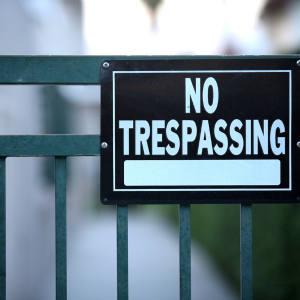
Squatting, or occupying property without legal ownership or permission, has a complicated history in Missouri. Squatters’ rights can be traced back to the Homestead Act of 1862, which allowed people to claim land after living on it and improving it for a set period.
This law was enacted to encourage settlement and development in the western territories, but it also established squatter’s rights in Missouri. Over time, various court decisions and laws have shaped the state’s interpretation and application of squatters’ rights.
Today, understanding these rights is critical for Missouri homeowners and real estate investors alike.
Legal Considerations For Squatters In Missouri
Homeowners and real estate investors in Missouri should be aware of some important legal issues regarding squatters. One important issue is the state’s adverse possession law. This law states that someone can claim ownership of a property if they have lived there without the owner’s permission for at least ten years and paid taxes on it.
However, this law has strict rules, and it might not work in some situations. It’s also important to know the difference between a squatter and a tenant since each has different rights and laws that apply to them.
Also, it’s important to know that getting rid of a squatter from your property can be a complicated legal process. If the homeowner takes matters into their own hands, they could face legal consequences. Knowing all of Missouri’s squatters’ rights laws inside and out can help keep homeowners and real estate investors out of trouble with the law.
Eviction Laws For Squatters In Missouri
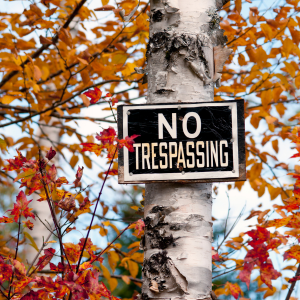
Real estate investors and homeowners in Missouri should know about eviction laws and squatters’ rights. For example, in Missouri, squatters can be kicked out using a legal process called “unlawful detainer.” This method involves suing the squatter and getting a court order to get them to leave.
Landlords and property owners must carefully follow this process and ensure that all legal requirements are respected in order to successfully evict a squatter. Otherwise, there could be legal problems and delays in getting the property back.
Remember that squatters who have lived on the property for a long time may be entitled to certain protections, so it’s best to talk to a lawyer before taking action.
How To Establish Squatter’s Rights In Missouri
Squatters’ rights in Missouri are established by the legal concept of adverse possession. This happens when one person occupies another’s property for an extended period of time without their permission in an open and consistent manner.
Squatters in Missouri can claim land ownership after ten years of occupancy and the fulfillment of other requirements, such as paying property taxes and improving the property. Homeowners and real estate investors must be well-versed in these statutes to safeguard their properties from would-be squatters and to prevent the abolition of their legal rights if they occupy someone else’s property.
Learning the steps to establish squatter’s rights in Missouri can help individuals safeguard their property and avoid legal trouble.
The Role Of Adverse Possession In Squatting Claims
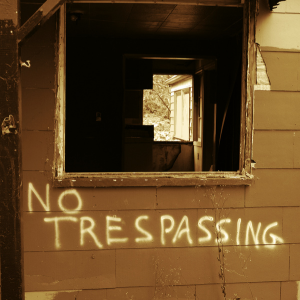
Squatting claims in Missouri rely heavily on adverse possession. This legal concept allows someone to claim ownership of another person’s property after occupying it openly and continuously for a period of ten years.
In the context of squatting, individuals living on someone else’s property without permission frequently use the term adverse possession. If the squatter can demonstrate that they have fulfilled all of the requirements for adverse possession, such as paying property taxes and improving the land, they may be able to obtain ownership of the property legally.
This can be a complicated and contentious issue for both homeowners and real estate investors because it requires balancing property rights with the legal recognition of long-term occupation. All parties involved must understand how adverse possession works in order to protect their rights and avoid potential legal disputes.
Common Misconceptions About Squatting In Missouri
Homeowners and real estate investors in Missouri might be misled by the numerous myths surrounding squatting. Contrary to popular belief, squatters do not necessarily possess any legal claim to the land they occupy.
Squatters in Missouri do not have any rights under the law unless they fulfill certain requirements. It is also false that squatters cannot be removed from their homes.
It may be more difficult to evict a squatter than a tenant with a lease agreement, but legal ways exist. Furthermore, squatters do not have any legal claim to the property, so while occupying it, they do not have any entitlement to utilities or services.
Homeowners and real estate investors in Missouri would do well to familiarize themselves with the facts about squatting laws and dispel common myths about the practice.
Navigating Property Ownership Issues With Squatting
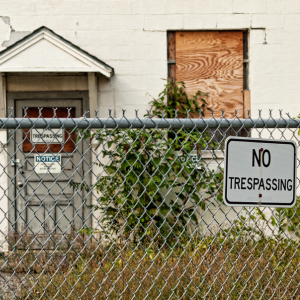
Squatting on property can be difficult for Missouri homeowners and real estate investors to navigate. Squatting, also known as adverse possession, is a legal term for occupying and using another person’s land without their permission.
Squatters have rights in Missouri that protect them in certain circumstances, so property owners must understand the laws governing this issue. It is critical to understand the requirements for adverse possession, which include continuous use of the property for at least ten years and openly claiming ownership.
Homeowners and real estate investors should know their options if they discover squatters on their property. This guide will help you understand squatters’ rights in Missouri and deal with any potential property ownership issues that may arise from squatting.
The Importance Of Written Agreements For Squatters In Missouri
Homeowners and real estate investors must understand squatters’ rights in Missouri. One important consideration is the need for written agreements with squatters.
These agreements outline the terms and conditions of squatters’ occupancy and serve as a legally binding contract between the property owner and them. It can be difficult to enforce agreements made with a squatter if they are not in writing.
This can result in conflicts and legal disputes, which are time-consuming and costly for all parties involved. As a result, homeowners and real estate investors must have written agreements to protect their rights and avoid potential squatter issues in Missouri.
Protecting Your Rights As A Lawful Occupant Vs. A Squatter

Understanding the distinction between lawful occupants and squatters is crucial for Missouri homeowners and real estate investors. Squatting, also known as adverse possession, is when someone occupies another person’s property without permission for a set period.
In Missouri, adverse possession lasts ten years. Your rights are legally protected if you are a lawful occupant with permission to reside on the property.
This means you have the right to stay on the property and cannot be forcibly removed by someone claiming adverse possession. To protect your rights as a lawful occupant, it’s important to stay informed about state laws and seek legal counsel if you suspect a squatter is violating your rights.
Potential Consequences Of Unlawful Occupation For Both Parties
One potential consequence of illegal occupation for both parties is the possibility of legal action. For homeowners, this could imply a lengthy and costly eviction process to remove squatters from their property.
On the other hand, real estate investors may lose money if they cannot obtain possession of a property due to squatters’ rights. Furthermore, there is a risk of property damage or a loss of rental income during the resolution process.
Furthermore, if word spreads about an illegal occupation, both parties may suffer negative consequences for their reputation and credibility in the real estate industry. To avoid these consequences, homeowners and real estate investors must understand squatters’ rights and take the necessary precautions against them.
Defending Against Eviction As A Lawful Occupant Or Tenant
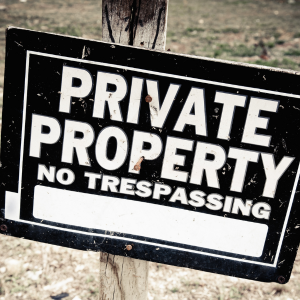
Missouri has legislation in place to protect lawful occupants and tenants from eviction by squatters. As a homeowner or real estate investor, you must understand these laws to defend against eviction.
If you receive an eviction notice from a squatter, you can challenge it in court. The first step is demonstrating that you are a lawful occupant or tenant with a valid lease or rental agreement.
You can also show that you have been paying rent and fulfilling your responsibilities as a tenant. Furthermore, if the squatter has not been paying rent or has violated the lease terms, this can help your case against eviction.
To successfully defend against eviction, you must seek legal advice and gather all necessary documents to support your claim as a lawful occupant or tenant.
Exploring The Grey Area: When Does Trespassing Become Squatting?
Squatter rights, also known as adverse possession, can be confusing and frequently misunderstood for Missouri homeowners and real estate investors alike. One frequently asked question is when trespassing turns into squatting. Simply put, squatting is when someone occupies a property without the owner’s permission.
However, in some cases, the distinction between trespassing and squatting becomes blurred. Factors such as how long the individual has lived on the property, whether they have made improvements or paid rent, and their intentions can all influence whether their actions constitute squatting.
It is critical that homeowners and investors understand these nuances to protect their rights and avoid potential legal problems.
Squatter’s Rights Vs. Property Owner’s Rights: Finding A Balance

When it comes to understanding squatters’ rights in Missouri, homeowners and real estate investors must balance the rights of squatters and property owners. Squatters, also known as adverse possessors, occupy property without legal rights or titles.
In Missouri, they can gain legal property ownership through adverse possession if they meet certain requirements, such as openly occupying it for ten years and paying taxes on it. Property owners, on the other hand, are entitled to protect their investments and retain control over their properties.
Both parties must understand their respective rights and responsibilities to reach a fair and equitable solution.
How Long Can You Squat In Missouri?
Squatting, also known as adverse possession, is a hotly debated issue in Missouri. Many homeowners and real estate investors are not familiar with the state’s squatters’ rights laws.
The big question on everyone’s mind is how long you can squat in Missouri. Missouri law requires a person to occupy someone else’s property openly and continuously for ten years before claiming adverse possession. This means that you retain legal ownership even if a squatter has lived on your property for less than ten years.
However, this rule has some exceptions, and seeking legal advice is always advisable when dealing with squatters. Understanding the timeframe and laws governing squatters’ rights in Missouri is critical for homeowners and real estate investors seeking to protect their properties.
What Is The Shortest Time For Squatters Rights?

Regarding real estate in Missouri, squatters’ rights (or adverse possession) are a complicated and often contentious issue that can affect homeowners and investors alike. Legally, it’s possible to acquire property rights to a place just by living there for an extended period, even without the owner’s consent.
The question remains, though, how soon squatters’ rights will be in force. In Missouri, ten years of continuous possession is the bare minimum. Accordingly, squatters may legitimately claim ownership of the property after ten years of openly using and maintaining it.
It is critical for investors and homeowners to be aware of this schedule so they can safeguard their properties from possible squatters.
Can You Kick Someone Out Of Your House In Missouri?
If you own a home in Missouri or invest in real estate, you should know squatters’ rights. Under Missouri law, squatters —people who occupy property without permission—have legal rights.
As a homeowner, you may wonder if you can kick someone out of your home if they squat on your land. The answer isn’t as simple as “yes or no.”
To successfully remove a squatter from your property, you must follow the proper legal procedures outlined by Missouri state laws. This guide will help you navigate the complexities of Missouri’s squatters rights and provide valuable insights for homeowners and real estate investors.
What Is Adverse Possession In Missouri?
In Missouri, adverse possession is a legal concept that grants possession of a property to someone who has openly occupied it for a set period, usually ten years.
This means that if someone has lived on or used a piece of land without the owner’s permission for more than ten years, they may be able to claim ownership through adverse possession.
However, strict requirements must be met for this law to take effect.
Understanding the nuances of adverse possession in Missouri is critical for homeowners and real estate investors seeking to protect their property rights and investments.
KC Property Connection, including Kansas City, St. Louis, Springfield, Wichita, and Lee’s Summit. If you need to sell your house fast, we promise to make you a fair, no-obligation, no-hassle offer. Take it or leave it. You’ve got nothing to lose. Do you still have questions? Calling us could be the best decision you make all week! (816) 600-4417
Resources To Help Sell Your House in Missouri
| [ | |||||
| “ | ] | “ | ] |


